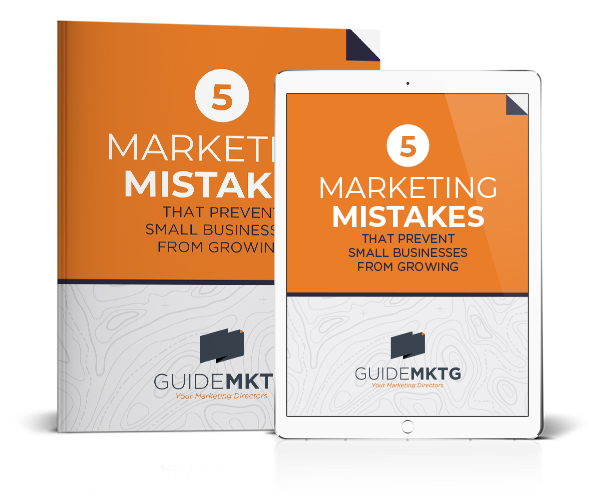Do you ever find yourself wondering, “Does SEO really matter for my website?” Allow me to clear the air: The answer is an emphatic YES. In today’s digital age, search engines like Google serve as the gateway to information, products, and services. Not only are they essential for finding information, but also play a pivotal role in customer acquisition. They are like the modern-day yellow pages, and how your website ranks on them can dramatically affect your business’s visibility and success.
Why is Website Ranking Important?
Think of the search engine as the arbiter between you and your potential customers. Your ranking essentially dictates how easily users can find you when they’re looking for information or services in your domain. Higher rankings don’t just bring more visitors; they often bring more relevant visitors, transforming your website from a digital billboard into a high-performing asset. This, in turn could lead to increased sales, brand awareness, or other conversions.
The Human Approach to SEO
Many marketers would have you believe that SEO is all about keyword stuffing and mechanical tactics. While keywords are vital, what often gets lost is the human element. Good SEO is not just about search engines; it’s about your audience. Understanding user intent and creating content that addresses those needs enhances user satisfaction and loyalty, all while boosting your SEO metrics. It’s an act of service aimed at providing valuable content that solves your customers’ most pressing challenges.
So, let’s not approach SEO as a task to game the system. Instead, let’s focus on crafting meaningful content that organically incorporates relevant keywords and answers the questions your customers are asking. Your audience is more likely to engage with a well-thought-out article or video that offers a solution to a problem they’re facing than a page stuffed with keywords but lacking in substance.
How to Find Your Website Ranking
Curious about your current SEO status? Here are some steps you can take:
- Google It: Simply search for keywords related to your business and see where you appear. This is rudimentary but gives you a general idea. However, be aware that this is influenced by your personal browsing history, so it may not be an entirely accurate reflection of your site’s ranking for the general population.
- Conduct an SEO Audit: This is a thorough evaluation of your site’s search engine presence. Many agencies offer this service, but there are also free tools available for those who wish to DIY. An SEO audit will identify issues that could be hampering your rankings, giving you a roadmap for improvements.
- Use Analytics Tools: Platforms like Google Analytics and SEMrush provide valuable insights into your website’s performance, including your current rankings for specific keywords. These platforms also offer competitor analysis features that can help you understand how your website stacks up against others in your industry.
The Role of Analytics & Metrics in SEO
One of the most overlooked aspects of SEO is the use of analytics and metrics to measure the effectiveness of your strategy. As the saying goes, “You can’t manage what you can’t measure.” This holds especially true for SEO, where data-driven insights can guide you towards a more effective and efficient approach.
Web analytics tools like Google Analytics, Moz, and SEMrush not only help you track your website’s ranking for specific keywords but also offer a comprehensive view of user behavior on your site. You can monitor metrics like page views, bounce rate, average session duration, and more. By analyzing this data, you can pinpoint areas for improvement and optimize your site accordingly.
Key Metrics to Track
Organic Traffic: This is the number of visitors who come to your site through organic search. A consistent increase in organic traffic usually indicates that your SEO efforts are paying off.
Conversion Rate: While traffic is essential, it’s the quality of that traffic that really counts. Tracking how many visitors are taking desired actions on your site—be it signing up for a newsletter, making a purchase, or filling out a contact form—can give you a clear picture of your SEO ROI.
Keyword Rankings: Knowing which keywords are driving traffic to your site is crucial. You should not only focus on high-volume keywords but also long-tail keywords that can contribute to increased visibility and conversions.
Click-Through Rate (CTR): This measures the percentage of clicks you receive based on your total impressions. A higher CTR indicates that your meta titles and descriptions are compelling enough to draw users in.
Page Load Time: Slow-loading pages can seriously hurt your rankings. Page speed is a ranking factor for Google, and it also significantly impacts user experience.
Backlink Profile: Keep an eye on the number and quality of backlinks pointing to your website. A strong backlink profile from reputable sites enhances your website’s authority and SEO.
By regularly monitoring these metrics, you can adjust your SEO strategy as needed, ensuring that you’re always ahead of the game. It’s not enough to merely implement an SEO strategy; you need to constantly measure its effectiveness and be willing to make adjustments. The SEO landscape is ever-changing, and what worked yesterday may not work tomorrow. So keep your finger on the pulse and make data-driven decisions.
How to Improve Your Ranking
Quality Content: The king of all SEO practices. Create insightful, meaningful content that your target audience wants to consume. By providing valuable information to your potential customers, you remain top-of-mind, establish authority in your industry, and improve your website ranking. Not only should this content be valuable, but it should also be regularly updated. Search engines favor sites that are dynamic and updated frequently, seeing them as more relevant to users.
Optimize Keywords: Use relevant keywords naturally within your content. Don’t overstuff your content with keywords, but use them strategically to target your ideal customers. Also, don’t forget about meta descriptions and title tags. In addition to main keywords, consider using long-tail keywords that are more specific but less competitive, increasing your chances of ranking higher.
User Experience: Search engines reward sites that offer good user experience, which includes mobile optimization, good page load times, and intuitive navigation. Accessibility improvements can lead to better user engagement and improved SEO.
Backlinks: These are links from other websites to yours. They serve as endorsements and can significantly boost your credibility and rankings when they come from reputable sources. Consider implementing a backlink strategy that includes reaching out to industry influencers, guest posting, and even creating case studies that others would want to link to.
The Ever-Changing Landscape of SEO
SEO is not a one-time job; it’s an ongoing commitment. And it’s not just about keeping up with algorithm updates, but also understanding how changes in consumer behavior, like the increased use of voice search, affect SEO strategies.
It’s crucial to understand that SEO is not a “set it and forget it” endeavor. The algorithms that search engines use are continually evolving, which means your SEO strategy must adapt accordingly. A technique that worked wonders a few months ago may not have the same impact today. That’s why continuous learning, regular audits, and adaptability are integral to maintaining and improving your website’s ranking. Stay on top of SEO trends and updates to ensure that your digital strategy is always at its most effective.
SEO is both a science and an art. While today’s focus has been on the human-centric aspect of SEO, know that there are advanced technical strategies too (but that’s a topic for another day). For now, remember: good SEO starts with good content that serves your audience.
Need help getting your small business found online?
If you are struggling to get your small business in front of your target audience, schedule a call with Guide MKTG. We will create a marketing plan that helps you stop wasting good money on bad marketing and start getting results.





